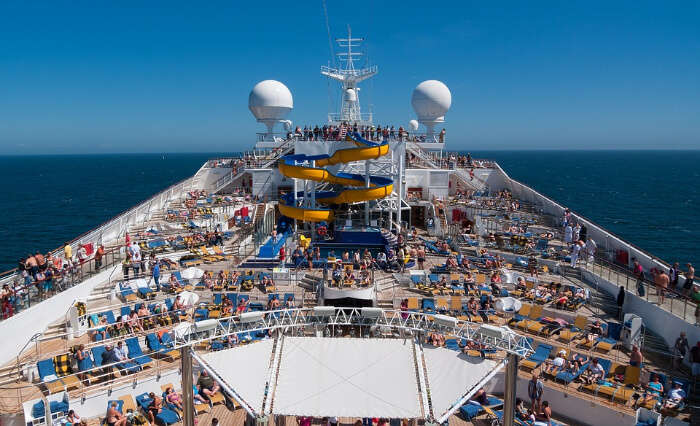
These are the things that you need to be aware when shopping for visitor insurance. These include the Exclusions and Coverage as well as Waiver of Exclusions. These will help you find the best plan to meet your needs. You should also consider purchasing travel insurance if you have a pre-existing medical condition or plan to travel abroad.
Coverage
Visitor insurance plans may provide coverage for your preexisting condition. A lot of plans offer pre-existing condition coverage. This allows you to receive benefits immediately after the diagnosis. It is essential that the preexisting condition be listed on the benefit schedule.
It is important to fully understand the terms of any visitor insurance policy that covers pre-existing conditions. Some plans do not cover pre-existing conditions at all. There are plans that don't cover pre-existing conditions, such as chronic or congenital diseases. This is why it is so important to get a policy with these coverages.

Exclusions
When you get visitor insurance, there are some exclusions that apply. A deductible will be required for anyone with a pre-existing health condition. Talk to your insurance company about the various payment options. They may be willing to give you a discount.
Many visitor insurance plans don't cover pre-existing health conditions. But, there are some. This covers congenital or chronic conditions as well as congenital diseases. Many seniors who travel to the USA or overseas have pre-existing medical issues that are covered by insurance. It is crucial to check that your plan covers you in case of an emergency.
Waiver of exclusions
Depending on which visitor insurance plan you have, you may be eligible for a waiver of the exclusion for pre-existing medical conditions. This waiver may be useful in the event of an emergency and the need for medical care while traveling. It allows coverage for non-traveling relatives who may have a similar medical condition. Here are some instances where you might be eligible to request a waiver.
Pre-existing conditions waivers are required for most travel insurance plans. You must purchase the insurance before your trip. You should purchase your insurance between 10 and 21 days prior to your trip. Before buying insurance, ensure you read through the terms.

Conditions covered by the visitor insurance
A visitor insurance policy protects against unexpected medical bills. Some plans may not cover pre-existing condition. These exclusions can be found on the policy. These conditions typically include chronic medical conditions and congenital disorders. This can cause problems for elderly relatives visiting the US, or in another country. There are many visitor insurance options that will meet your needs.
You can choose to have specific coverage for preexisting conditions depending upon your age and past health history. You can obtain visitor insurance that covers pre-existing pre-existing condition coverage up to $35,000, and up to $15,000 for heart pre-existing disorders. This plan is ideal for people between 70 and 79. These plans are affordable and offer extensive coverage. This insurance is best for those with pre-existing health conditions. It can also cover a wellness visit.
FAQ
What is the first thing to do after arriving at your travel destination?
An itinerary is essential for every trip. This helps you to know what to expect and where you should go next.
To avoid missing anything, you need to plan ahead.
If you plan to spend more than one day in a given city, it is important to research the museums, parks and landmarks that you would like to see.
A map of the area may be useful and you might want to read up on the history.
How can I prepare myself for vacation?
You need to eat and exercise regularly to maintain a healthy lifestyle while on vacation.
Be sure to stay hydrated and well rested before you leave home.
Make sure you have all the necessary travel documents and medications ready to go.
You should also ensure that you have enough medicine to last you through your trip if you plan to take any medication.
Last but not least, make sure you have a spare set of clothes in case something happens.
You should not forget these things when you travel.
When you travel, you'll find yourself in situations with little time to make decisions. It's okay to be spontaneous.
You may be stuck someplace for hours or days, or even months. You can plan ahead to ensure you have water, food, shelter, and somewhere to sleep. You may need to improvise if you don't plan ahead.
In these cases, you'll probably have to rely on what you know how to do best. It means you have to be able to quickly make decisions based upon your experience and instinct.
Sometimes you just can't make a choice. There are many situations where you might be left without cell or gas service, or even robbed. These situations will require you to quickly adapt to the situation.
Keep calm, be focused, and take action. Don't panic. Instead, keep your eyes on the things you can control.
If you find yourself lost in the woods you can choose which way to go. If you feel hungry, you have the option to eat berries or mushroom. Rainwater can be drank or snowmelt.
Rest if your tired. Wrap up warmly if it's cold. You can also change your clothes if you are wet. You will feel happier no matter what, if your outlook is positive
What can I put in my suitcase for travel?
Always have at least two pairs. You should have at least two pairs of shoes for your daily walks in the city, and one pair to take on vacation.
A good idea is to make sure that you have enough clothes in both cases. If you are traveling by plane, you need to make sure you have an extra shirt, pants, underwear, and socks.
It's a good idea to bring along some clothes for longer stays. This way, you won't feel uncomfortable when you go shopping for new outfits.
Comfortable shoes are essential for those who take the bus or train. For those who drive, it is a good idea to have spare tires.
You should also pack lots of toiletries including shampoo, toothpaste as well as moisturizer and deodorant.
And last but not least, you'll need to take a flashlight, insect repellent, sunscreen, sunglasses, a hat, and a first aid kit.
Do not forget to pack all your essentials in one bag. This will save you time and space.
Last but not least, make sure to bring a small towel & washcloth. They are very handy for when you need to shower after a long, tiring day.
Statistics
- Alcoholic beverages with 24% alcohol or less are not subject to limitations in checked bags. (tsa.gov)
- No Checked Bags: No Alcoholic beverages with more than 70% alcohol (over 140 proof), including grain alcohol and 151 proof rum. (tsa.gov)
- You can use compression sacs or cubes to reduce the volume of your clothes by up to 80%—this is especially convenient for bulky items such as sweaters and jackets. (eaglecreek.com)
- According to Maori legends, this park holds 14 fjords that were all carved by a giant stonemason with an adze. (busytourist.com)
- Between the ages of 11 and 13, kids, or tweens, will likely want some autonomy but also need boundaries. (travelandleisure.com)
External Links
How To
How do you make traveling easier?
Traveling is always easy when you have everything planned out ahead of time. You don't need to worry about what you'll be buying, where your next stop is, or how much money it will cost. Plan and organize your trip before you go. You won't have to waste time trying to figure out what you need during your trip.
Planning Ahead
There are many different ways to plan your travels. Some prefer to keep track of everything online while others prefer to take notes in a notebook. Some people plan by planning their entire trip before they set out. Others may just get started packing and leave the rest to their imagination. Whatever your preferred method, plan ahead. You'll be able to save valuable time and effort during your trip.
Organizing Yourself
You must organize your travels if you want to be successful. Before you go on vacation, you must make sure you know exactly what you need. Make sure you have everything that you may need. Take into account the climate in your destination country, and pack accordingly. Consider whether you will rent a vehicle or prefer public transportation. Check the facilities at your hotel before you leave. Do you have Wi-Fi? Is breakfast included in your stay Does the hotel provide laundry services? These are crucial details to include on your checklist. These items will be checked off your checklist so you can relax while you enjoy your vacation.